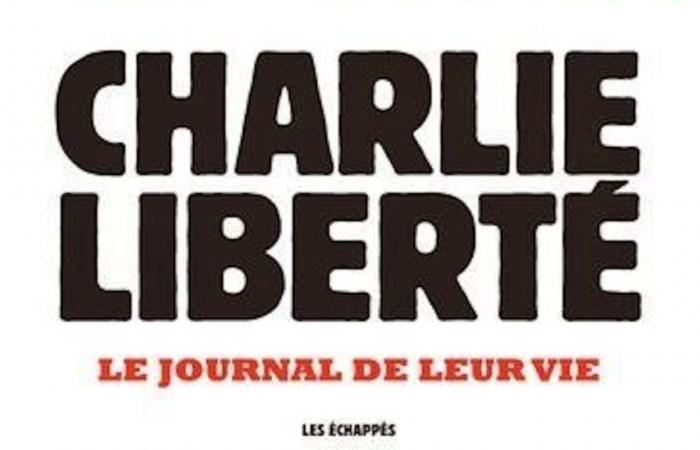As the 10th anniversary of the Islamist attack that decimated its editorial team approaches, “Charlie Hebdo” pays tribute to its “disappeared” in a poignant book, intended to “make the terrorists lie” who rejoiced, on January 7, 2015, for having “killed” the newspaper.
Twelve people lost their lives in the attack by the Kouachi brothers on the satirical weekly, a target of jihadist threats since the publication of caricatures of the Prophet Muhammad in 2006.
Two hundred pages
Among them, eight members of the editorial staff: the designers Cabu, Charb, Honoré, Tignous and Wolinski, the psychiatrist and psychoanalyst Elsa Cayat, the economist Bernard Maris and the proofreader Mustapha Ourrad.
Expected on December 5 from Les Échappés, “Charlie Liberté, the journal of their life” celebrates their work through a selection of drawings, texts and testimonies on more than 200 pages. The latest are also dedicated to the former webmaster of the weekly, Simon Fieschi, seriously injured in 2015 and died in October at the age of 40, a week before the book went to print…
Their work has “not aged a bit”
“The idea was to talk about the missing”, “what they also did before being at “Charlie” and how they got there”, relates Gérard Biard, the editor-in-chief of the newspaper .
To “continue, in some way, to keep them alive and to make lie to the two terrorists who, after committing their massacre, left the editorial office shouting: ‘We killed “Charlie Hebdo””,” continues the journalist. “They did not kill “Charlie Hebdo”, which sells 50,000 copies every week.”
As for the missing, “they are not dead either”, their work having “not aged a bit”, he argues.
Seventeen dead in total
In addition to their creations for the weekly with corrosive humor – from Maurice and Patapon, Charb’s anti-capitalist dog and cat, to Elsa Cayat’s “Charlie Divan” column – the book returns to the first sketches of Cabu, winner at 19 years old from a competition for a brand of pens, Honoré’s fascination with animals or Mustapha Ourrad’s love of the French language…
It’s about giving the reader the “want to be free as they were,” explains Riss, the director of “Charlie,” in the book’s introduction. “We don’t create “Charlie Hebdo” by chance,” underlines Gérard Biard, recalling that François Cavanna and Professor Choron founded it in 1970 to “write and read there what they could not read elsewhere” and circumvent the censorship of the Gaullist power targeting their magazine “Hara-Kiri”.
“Charlie Liberté” thus inaugurates the commemorations of ten years of the January 2015 attacks against the newspaper, a Montrouge police officer and the Hyper Cacher, which left 17 dead.
(afp)


